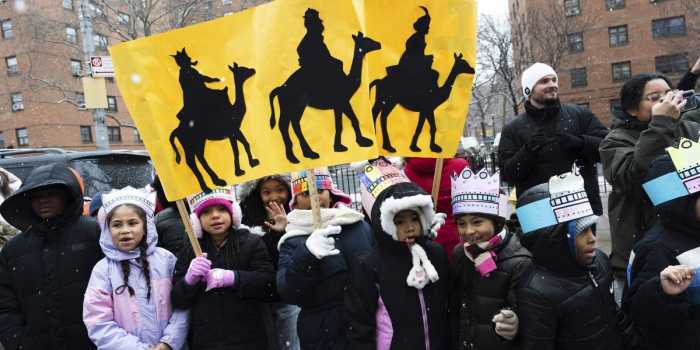My wife and I are not U.S. citizens, but I have been living in the U.S. for 15 years. One of our three children was born in Italy, but the other two were born here and have citizenship from both countries. Our third child also has a U.S. passport. Do we have any unique issues that we should be considering?
Yes! Many parents are so busy taking care of their children that they delay their own estate planning. Some spouses avoid the discussion because they cannot agree on a guardian. Some believe that they do not need a will since they do not have substantial assets.
Raising children is chaotic, but one thing is for sure: every parent should have essential documents in place to legally protect their family. In a situation where one or both parents are non-U.S. citizens or the chosen guardian or trustee of money for U.S.-based children is a non-U.S. citizen living abroad, there are unanticipated events that can disrupt an otherwise documented estate plan. Here are five things all non-U.S. citizen parents living in the U.S. should consider:
Choosing a guardian
The most common reason parents start thinking about estate planning is their concern about who will care for their children if both spouses die. You can nominate a guardian and alternate guardians for your minor children in your Last Will and Testament. The court can approve the appointment and will usually do so unless it finds that the guardian is not fit to serve. In the absence of a will or a designation of a guardian in a will, the court will appoint a guardian for your children.
Many spouses disagree on who should serve as a guardian. In deciding on a one, parents should consider many factors, including:
• The relationship with your children.
• The Willingness to accept responsibility.
• Whether he or she has children and their ages.
• Whether he or she lives in the same or a different state.
• Whether you anticipate maintaining relationships with both sides of the family.
• Whether he or she can meet the physical and emotional demands of being a guardian.
Keep in mind that you may always change your will at any time, and the person you nominate as guardian of your toddlers may not be the same person you want as their guardian when they are teenagers.
You should look at your will every two to three years or more frequently when you or your appointed fiduciary experience major life changes such as a birth, death, disability, or divorce. You should also choose at least one alternate guardian if the person you selected is unable or unavailable to act as guardian when needed.
Foreign nationals frequently desire to appoint non-U.S. domiciled guardians of their minor children in case of a common accident. For non-U.S. citizens, or even U.S. citizens whose chosen guardian is a non-U.S. citizen living outside the United States, you need to consider the practicalities of having your children relocated outside of their home in the country.
All nominations of a guardian in a will remain subject to confirmation by the Surrogate’s Court, irrespective of citizenship. The court determines whether the nomination is in the best interests of the child, and whether the person is eligible to serve as a fiduciary. Usually it will defer to the parents’ nomination in the will, but could be persuaded otherwise if someone challenges the nomination.
In cases involving foreign nationals, a non-U.S. resident may not be eligible to serve as a guardian, and therefore may not meet the statutory requirements to serve as a fiduciary. Under New York law, people ineligible to serve as fiduciaries include minors, felons, and non-resident aliens, among others. Thus, a non-domiciliary with children in the U.S. who dies without a surviving spouse runs the risk that her designation of an alien sibling or parent may not necessarily be confirmed as a guardian, whether or not the nomination is challenged.
One of the factors the court could consider is the location of the nominated guardian, and if it is in the children’s best interests to return abroad, or to remain in the United States. Another factor might be evidence of the parents’ prior intent to return to their home country or to remain in the United States, and whether the children are citizens of the United States or temporary residents.
You should also consider that your children may not want to leave their home in the U.S. to go to another country. Children who are 14 years old or older can have a say in the appointment of a guardian, and that child may not want to leave his life behind, be it for Idaho or Italy.
For foreign nationals residing in the U.S., the best course of action may be to designate your first choice as guardian, even if that person is a non-U.S. resident. There should also be one or two alternate nominations as guardian in the event that the court declines to appoint the primary choice. As always, individual consultation with an attorney is critical.
Wills & testamentary trusts
A will is a legal document that dictates how you want your assets distributed after your death, and, as noted above, who you want to serve as the guardian of your children and trustee of any money for their benefit. Minor children cannot directly own assets. Your will should specify that any property passing to a minor be held in a trust, the terms of which are set forth in the will.
Parents of special-needs children should incorporate trusts that permit the child to maintain any government benefits while still reaping some benefits from the trust income. The trust becomes effective at your death. It is a separate legal entity that holds the assets for the benefit of the beneficiaries. The terms can set forth how income is distributed and when principal is accessed (usually for the health, education, maintenance, and support of the beneficiaries at the discretion of the trustee), and at what ages the children are entitled to distributions of the remaining principal. A designated trustee administers the trust and makes those distributions.
You can specify in your will what the trust can and cannot be used to finance, how much can be used for college, and under what conditions. You can nominate one or more co-trustees and alternates, and can nominate a friend, family member, lawyer, or bank or corporate trustee.
Other key documents
These additional documents are essential to protecting yourself and your family:
Health care proxy. Appoints the individual you would want to make heath decisions on your behalf if you can’t, as well as any successor agent to fulfill that role if the primary agent isn’t available.
Living will. Provides direction to your agent under your health care proxy regarding end-of-life choices such as feeding, hydration, resuscitation, and life support if you are unable to communicate.
Durable Power of Attorney. Differs from the health care proxy in that it is for financial matters (not health related), and it is effective upon execution (not upon incapacitation). This is a very powerful document and misuse by an agent could cause great financial harm, but it is a very important document to have in place. Failure to do so could lead to a potential guardianship proceeding in a crisis situation, which can be time consuming and costly.
Appointment of Agent for Disposition of Remains. Appoints an agent to make burial and funeral arrangements. Some ex-pats prefer to be buried in a family plot or returned to the home country.
Appointment of Standby Guardian, Authorization to Leave Country, and Medical Authorization. Streamline the ability of a guardian to return to the home country with minor children.
Beneficiary designations
Assets such as retirement accounts and life insurance are non-probate assets and are transferred outside of the will. Those assets require a designation of the beneficiary — the person or persons whom you want to inherit those assets at your death. Parents often have retirement accounts left with previous employers, often before they married and had children. It is critical to review all of your accounts and ensure all beneficiary designations are up to date.
You should consult an attorney to make sure that your documents meet your objectives. Although many forms of these documents are online, only an attorney can help you understand what they mean and how they work. Being an ex-pat requires an additional level of attention to your legal needs. Without the benefit of legal insight, you may make mistakes that undermine your intentions.
Alison Arden Besunder is the founding attorney of the law firm of Arden Besunder P.C., where she assists new and not-so-new parents with their estate planning needs. Her firm assists clients in Manhattan, Brooklyn, Queens, Nassau, and Suffolk Counties. You can find Alison Besunder on Twitter @estatetrustplan and on her website at www.besun












